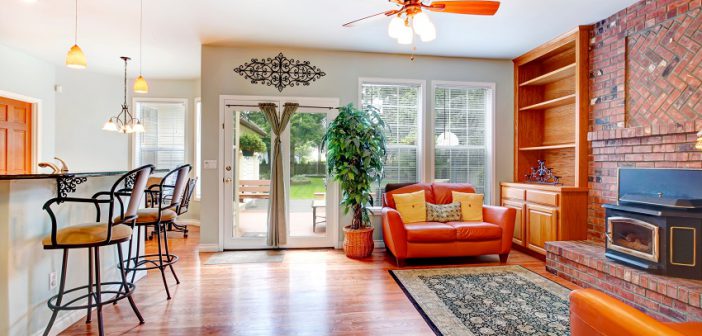Tucson group homes provide a range of therapeutic services to support residents with mental health, behavioral, and substance use challenges. Residents benefit from evidence-based therapies such as group therapy, one-on-one counseling, and personalized care plans designed to foster health and independence.
Experienced professionals work closely with each individual, using proven approaches to promote growth and stability. Programs such as youth group homes in Tucson or in nearby areas also emphasize a homelike atmosphere and 24/7 assistance, helping residents feel safe as they work towards their goals. With personalized care and guidance, these programs foster a sense of belonging and community. The comprehensive support system makes sure that every resident has the resources needed to succeed and thrive, both emotionally and academically.
Key Takeaways
- Tucson group homes provide various therapy options, including group and individual counseling.
- Residents receive personalized, evidence-based support in a structured setting.
- Services are designed for both adults and youth, helping them achieve greater independence.
Types of Therapy Provided in Tucson Group Homes
Avery House, such as Tucson group homes, provides a structured setting where youth and adults receive targeted support for various mental health needs. Clinical services address concerns like depression, anxiety, and behavioral challenges through a combination of individual work, group participation, and medical management as appropriate.
Individual Therapy Approaches
Residents in Tucson group homes often meet one-on-one with licensed therapists. Individual therapy typically focuses on issues such as coping with trauma, regulating emotions, and building life skills.
Common approaches include:
- Cognitive Behavioral Therapy (CBT): Helps individuals identify unhelpful thinking patterns and develop healthier responses.
- Trauma-Informed Care: Supports those affected by past trauma or abuse.
- Motivational Interviewing: Encourages internal motivation for positive behavior change.
Sessions provide a private space for residents to discuss personal concerns. These might involve managing symptoms of depression, understanding triggers for anxiety, or learning to communicate effectively.
Group Therapy Modalities
Group therapy is a core part of life in many Tucson group homes. These sessions bring residents together in a structured environment led by clinicians with experience in mental health treatment.
Frequent modalities include:
- Psychoeducational groups on mental health topics, such as emotional regulation or symptom management.
- Skills training workshops covering healthy relationships, conflict resolution, and coping mechanisms.
- Peer support circles where members share experiences and receive feedback.
By participating in group therapy, individuals build social connections and realize they are not alone in their struggles. Sharing experiences can foster resilience and help residents apply new strategies in everyday situations.
Medication Management and Psychiatric Services
For those with mental health diagnoses like depression or severe anxiety, medication management and access to psychiatric care are essential. Group homes in Tucson and Avery House often coordinate with psychiatrists or nurse practitioners.
Key services include:
- Evaluations by licensed providers to assess the need for psychiatric medications.
- Ongoing monitoring of effectiveness and side effects.
- Regular adjustment of medications as symptoms change.
Therapists work closely with medical staff to integrate medication management with talk therapy and behavioral interventions. This comprehensive approach helps individuals stabilize moods, reduce symptoms, and engage fully in other aspects of residential treatment.
Supportive Services and Environment in Tucson Group Homes
Tucson group homes provide more than just a place to live—they provide therapeutic and social programs focused on resident well-being. Residents benefit from professionally guided interactions, structured daily activities, and consistent access to mental health support.
Peer Support and Support Groups
Peer support is a core feature in many Tucson group homes. Residents often participate in support groups, which are guided by trained therapists or counselors. These groups allow individuals to share experiences, discuss challenges, and provide encouragement in a confidential setting.
Support groups help residents develop important social skills and coping strategies. Sharing similar struggles fosters trust and rapport among participants, making it easier to talk about difficult subjects. It also reduces feelings of isolation and helps individuals see that they are not alone in their journey. Peer support can include mentoring relationships or structured group activities. This emphasis on connection is designed to improve self-esteem and resilience while promoting healthy interpersonal relationships.
Creating a Supportive Environment for Residents
Group homes in Tucson emphasize a structured, supportive atmosphere to promote healing and stability. Daily routines are overseen by trained staff members, ensuring consistency and safety throughout the day. Residents are provided with individualized care plans, which outline goals and interventions tailored to their needs. Staff provide coaching and assistance with daily living skills, such as personal hygiene, meal planning, and community engagement.
The physical environment is designed for comfort and safety. Homes typically feature shared common spaces, private areas for reflection, and accommodations that meet accessibility standards. This structure helps residents gain independence while feeling secure.
Family Involvement and Collaborative Care
Many group homes recognize the importance of family in the recovery or support process. Family involvement may include regular meetings, education sessions, or collaborative care planning with therapists and case managers. Staff facilitate communication between residents and their families to address concerns and coordinate support. This collaboration can help set realistic goals, monitor progress, and ease the transition out of group home living when appropriate.
Therapists may also involve families in counseling sessions, focusing on building healthy boundaries, improving relationships, and teaching effective communication strategies. These efforts aim to reinforce positive behaviors and strengthen residents’ support networks.
Conclusion
Tucson group homes provide a range of therapy options, including individual and group counseling, behavioral interventions, and psychiatric services. Residents can access care tailored to their needs, whether for mental health support, substance use, or emotional challenges. These services are structured to promote stability, safety, and measurable progress for each individual placed in care.




